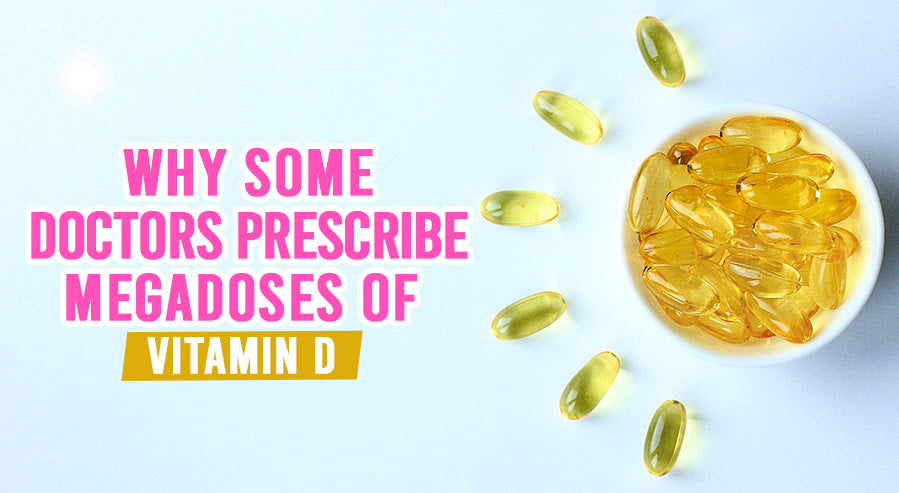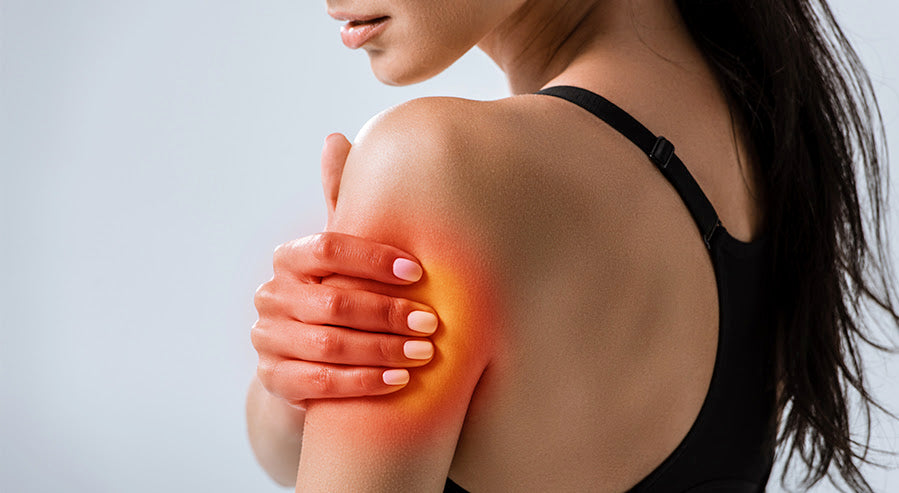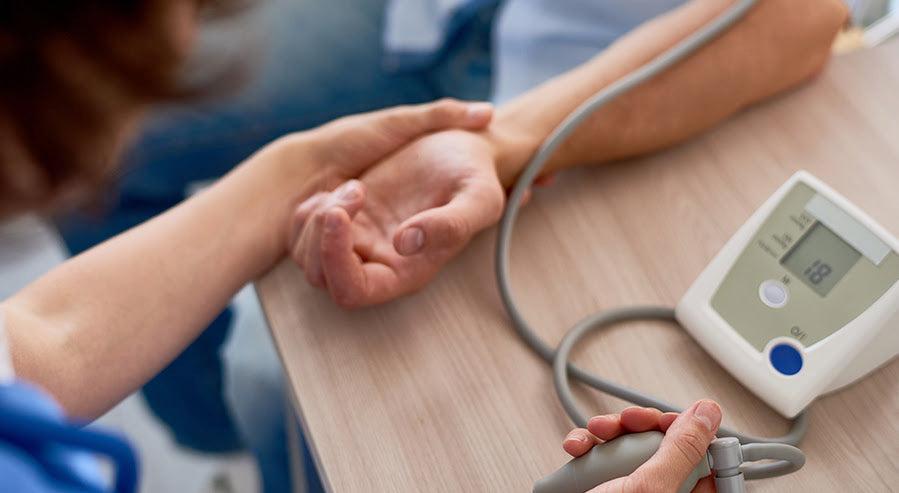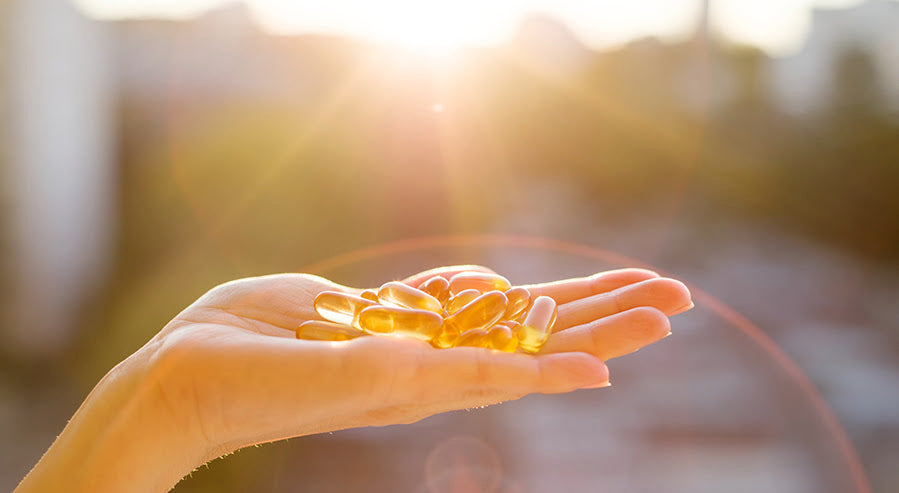Why Some Doctors Prescribe Megadoses of Vitamin D

Vitamin D is important for strong bones and a healthy immune system. If your body doesn't have enough, you may need to take extra vitamins. In serious situations, doctors sometimes use a quick, strong dose to fix this shortage.
If you don't have enough vitamin D, doctors may give you a big dose to help you feel better quickly. They'll check your blood to make sure you get just the right amount and not too much. But talking to your doctor can help you get advice that's just right for you, and this isn't a good idea for everyone.
Let's talk about why this happens and what to do if you were prescribed a "megadose" or high dose of Vitamin D!
Why Vitamin D is Important
Think about it: vitamin D is really your body's friend for keeping bones tough and muscles working like they should. When you don't get enough, it's like your body can't use the calcium from what you eat, which can lead to weak bones and even some serious health issues, especially as you get older.
Vitamin D is both about bones - it's super important for staying healthy by protecting you from germs and possibly stopping some health problems before they start. To stay on top of your game, you need to keep your vitamin D levels just right.

So, how do you know if your vitamin D is doing its job? A blood test can tell you if you're good to go or if you need to up your game. It's smart to keep an eye on this because being at the right level is important to feeling great.
Getting your daily dose of vitamin D can be as easy as spending a little time in the sun or eating certain foods like fatty fish or vitamin D-fortified foods. If you're not getting enough from the sun and snacks, don't worry; supplements have your back. Sometimes, doctors suggest a big boost to start off your levels if they're low.
But keep in mind, more isn't always better. The right amount of vitamin D varies from person to person, and it's best to follow a health pro's advice to avoid getting too much. Taking care of your vitamin D means you're taking care of your whole self.
What Constitutes Severe Vitamin D Deficiency?
When you're not getting enough vitamin D, say if your levels drop below ten ng/mL, it's actually a big deal. You might feel pain in your bones and muscles that just won't go away, or an extra sensitivity to pain that seems out of the ordinary, or even a prickly feeling like pins and needles. For children, it's pretty serious because their bones can start to bend. Instead of growing straight, their legs might curve outwards.

For adults, the worry is weakness in the muscles - think about struggling just to stand up after chilling out in your favorite chair. To fix this, doctors sometimes recommend a big initial dose of vitamin D. It's like a vitamin D sprint to get your levels up quickly, where you might take 50,000 IU every week of Vitamin D for a couple of months.
After you hit the right amount of vitamin D, it's in keeping it steady. Definitely, you don't want to fall back into low levels. A good game plan is taking about 800 to 1,000 IU every day and combining foods that are rich in vitamin D with supplements. This way, you're taking care of yourself for the long haul. Just to be clear, sticking with it is important. It makes sure your vitamin D doesn't drop again, so you won't have to go through the whole megadose schedule from scratch.
Why Are Megadoses Used for Bone Health Issues?
If you're someone coping with health issues that make it tough to get the nutrients you need - conditions like Crohn's disease or when you've had certain surgeries - it's really important to keep your vitamin D levels in check. Why? Because it helps your bones stay strong. And you might think that means taking extra vitamin D is the way to go.
But here's the thing: recent research, like a big study you'll find at Harvard, is making us question that. It shows that taking vitamin D, even as much as 4,000 to 10,000 IU every day, doesn't boost your bone health more than a small dose of 400 IU. This is honestly quite surprising and is making health pros rethink the whole "more is better" technique.
Actually, it looks like too much vitamin D could be not so great for you. Believe it or not, too much could even make your bones less dense. So, this is kind of a heads-up about the dangers of taking more than what's recommended.

There's been some back-and-forth about this study, especially about who was involved. Some people are concerned that the results might be off because they included people with specific vitamin issues. This discussion is adding more layers to what we know about vitamin D and health.
The bottom line is that it's becoming clear that a little bit of vitamin D is enough. A moderate amount supports our bones just fine and avoids the risks of taking too much, and finding the sweet spot is what works to help us take care of our bones properly.
Do Certain Health Conditions Necessitate Megadoses?
Imagine your body as a machine that sometimes needs a bit more juice - specifically, Vitamin D. If you're not getting enough sun or have certain health issues, you might need extra. Think of it as a health boost, but always chat with your doctor first. To give you an example, when a baby's on the way, moms-to-be need more Folate or Vitamin B9. It's about keeping both mom and little one healthy.
But here's the thing: you wouldn't believe how getting too much of a good thing, like Vitamin A, isn't so great. It's especially risky for pregnant women and kids. Vitamin B12, you see, is a big help for some, but it can hide other health issues if you overdo it.

Look, if you're thinking about taking more vitamins than usual, it's best to talk to a healthcare pro - it's about keeping you safe and making sure everything works together nicely. After all, they know the score and can guide you to the right decision, avoiding any vitamin-related mix-ups. Vitamins are just one piece of your overall health.
Are Obesity and Medication Factors in Dosage Decisions?
If you carry extra body fat, you may require a greater amount of Vitamin D compared to someone with less body fat. Think about it this way: if a person is really overweight, they could need triple the amount of vitamin D for every kilogram of their body weight. So, keep in mind the importance of tailoring vitamin D intake to your body's specific requirements.
I'm talking about how much fat you have; it's also about where it is. Fat around your belly could mess with your vitamin D levels more than fat in other spots. Knowing this helps doctors give just the right amount of vitamin D to each person, rather than everybody getting the same amount.

Before you rush to take vitamin D supplements, you have to think about whether they'll play nicely with any other meds you're taking. Some drugs, like those for lowering cholesterol or helping with weight loss, can change how well your body handles vitamins that need fat to work well, like vitamin D. Make sure your doctor knows about all the meds you're on so they can figure out the best vitamin D dose for you.
In short, getting the right vitamin D level can be difficult if you're dealing with obesity or on certain meds. The trick is to fine-tune your dose by paying close attention and understanding how different things affect vitamin D in your body.
Could Megadoses Benefit Other Health Conditions?
Vitamin D is important for strong bones, that's for sure. But hold up, when we talk about taking loads of it, we need to think twice. To keep your heart healthy, some people say heaps of Vitamin D can stop heart attacks or strokes, but the truth is, we're not really sure yet.
When it comes to stopping cancer, it's a similar story. Sure, Vitamin D can do some cool things with cells, but whether it can prevent cancer is something science has yet to confirm.

Vitamin D is getting some attention for possibly being a super-helper for our immune systems and protecting our nerves. People are curious if it could help us from getting sick or help with immune problems. It definitely makes you wonder, doesn't it? But we don't have the complete picture just yet.
Also, there's this idea floating around that Vitamin D could help with brain things like multiple sclerosis. The thought of using a lot of it for prevention or treatment is pretty interesting. But, honestly, we need more facts and tests to back that up.
When talking about mood and mental health, vitamin D might play a part in helping us feel happier and less blue. Still, the big question is if mega doses can really make a difference in our mental health. We need more proof of that.
Bottom line? Vitamin D is great, but the idea of using mega doses for different health troubles needs a careful look. We have to keep studying to be sure about how much we should use. In health, it's in being certain rather than hopeful, and that's why we can't just jump on the bandwagon of taking a ton of it.
The Risks of Vitamin D Toxicity
Taking in too much vitamin D can really upset your health. If you have too much, you could feel sick to your stomach, get stomach aches, or always feel thirsty. Weak muscles, confusion, and high blood pressure are signs that your vitamin D has pushed up your calcium levels too much - doctors call this hypercalcemia.

Believe it or not, this doesn't happen commonly, but even 2,000 IU a day of vitamin D could be too much if you're sensitive. It's a common mix-up to think loads of vitamin D are always good for you, but that's not really true. Adults should keep it under 4,000 IU a day because more might be bad for your health.
If you end up with too much vitamin D, the first thing to do is get your calcium back to normal. Cut back on the vitamin D and drink more water. For serious cases that touch the kidneys, you might need medical treatments like dialysis.
The good news? You can usually get better from too much vitamin D if you get the right medical help. To avoid these issues, stick to a safe amount of vitamin D and only use trustworthy supplements. It's super important to make sure what you're taking is safe to keep your health in check.
Finding The Perfect Blend
Are you thinking about taking a lot of vitamin D? Hold on a second. Really, chat with a doctor first. They'll look at your age, wellness, past health things, and what your body needs to figure out just the right amount of vitamin D for you - and when you should take it. The goal here is to nail that sweet spot for your health. Docs usually run a blood test to see how much vitamin D you have going on already and to make sure it won't mess with other meds you might be taking.
Going rogue and guessing your vitamin D amount? Not a great move. You might end up with achy bones, some nasty kidney trouble, or even push your heart in the wrong direction. It's a balance thing - too little vitamin D isn't great for your immune system or bones, but too much could kick off some not-so-fun side effects.

While you're working with your healthcare friend, you could also think about trying some natural things. Take us at Teami for example. We have teas and wellness things that you might find pretty useful. Looking to keep your weight in check, get better sleep, pump up your immune system, or just feel all-around good? We use natural ingredients to help refresh and nourish you from the inside out. Give our products a try and see if there's something that feels right for what you're after.
Subscribe to our Newsletter
Subscribe to our newsletter and get 10% off your first purchase
 Instagram
Instagram



